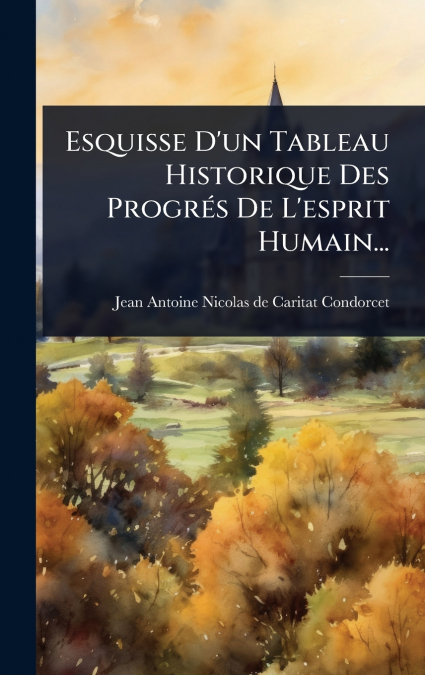
Jean-Antoine-Nicolas de Caritat Condo...
Esquisse d’un tableau historique des progrès de l’esprit humain, written by Jean-Antoine-Nicolas de Caritat, Marquis de Condorcet, is a seminal work of the Enlightenment. Penned in 1793 amidst the turmoil of the French Revolution, it offers a sweeping vision of human history as a narrative of continuous progress. Condorcet, a mathematician, philosopher, and political scientist, argues that reason and scientific inquiry are the driving forces behind societal advancement. The book outlines ten distinct epochs in the development of civilization, from the earliest hunter-gatherer societies to the dawn of modern science. Despite being written during a period of intense political upheaval, Condorcet’s work exudes an unwavering optimism about the future of humanity, predicting the eventual triumph of reason, equality, and justice. This historical sketch remains a powerful testament to the enduring ideals of the Enlightenment and a vital contribution to the philosophy of history.This work has been selected by scholars as being culturally important, and is part of the knowledge base of civilization as we know it. This work was reproduced from the original artifact, and remains as true to the original work as possible. Therefore, you will see the original copyright references, library stamps (as most of these works have been housed in our most important libraries around the world), and other notations in the work.This work is in the public domain in the United States of America, and possibly other nations. Within the United States, you may freely copy and distribute this work, as no entity (individual or corporate) has a copyright on the body of the work.As a reproduction of a historical artifact, this work may contain missing or blurred pages, poor pictures, errant marks, etc. Scholars believe, and we concur, that this work is important enough to be preserved, reproduced, and made generally available to the public. We appreciate your support of the preservation process, and thank you for being an important part of keeping this knowledge alive and relevant.